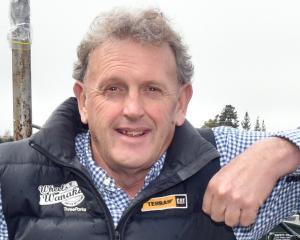

There is a tension in the air around campus, a mix of nervousness, exhaustion and anticipation, as the final weeks of lectures wind down and we approach the start of exams on October 20.
Even amid the exam stress, the threads of the next chapter of student life are beginning to weave together.
In many ways, especially as we approach the end of the year, student life reads like a bildungsroman. Like characters in a novel, students encounter trials, setbacks and moments of self-discovery, shaping their adult identities one experience at a time.
At this time of year, my friends and I reminisce about how nervous we were for our first-year exams and how much of a rite of passage that was.
Although my biggest exam, LAWS101, was online due to Covid-19 restrictions, I noticed some similarities with the experiences first-year students are sharing today. Late-night study sessions, group tutorials and the collective buzz of the hall in study mode are immovable constants of student life.
At my hall, it was a comfort to have a variety of study spots available in the evenings, such as the Hewiston Library, which offered evening shelter from the chaos of communal living.
Small rituals, such as negotiating group work, managing distractions and balancing independence with shared responsibilities, all become lessons in time management, resilience and self-
discipline. These are the unspoken curriculum of the first year.
Many students are balancing exam preparation with the excitement and stress of planning summer adventures.
In the past fortnight, ticket sales went live for two major 2026 festivals: Electric Avenue and Laneway, which sold out in about 30 minutes, leading to an awkward mix of excitement and disappointment at the library those days.
Students across the country were joining online queues to purchase these tickets from libraries, flats, halls, cars and even work.
There are also practical challenges that many students face when studying away from home, such as organising flights and working out how to move a year’s worth of belongings out of a hall within 48 hours of their final exam finishing.
Second-year law students are facing their big, full-year exams. The property exam is being assessed open-book for the first time, offering a helping hand at face value, but another challenge is figuring out how to decide what pieces of a year-long course to bring into the exam.
The second year also brings the challenge of deciding what pieces of inventory to leave in Dunedin and what to take home for the summer.
Some students received exciting news last week when their exchange applications were approved. Otago’s extensive network of global exchange partners offers a wide range of destinations, and it has been enjoyable hearing about everyone’s plans.
A friend of mine was accepted into Trinity College in Dublin, where spots filled in just two minutes — reminiscent of the festival tickets selling out.
Many students also take a summer school paper before heading abroad, easing their workload while on exchange and creating pockets of freedom to explore.
Even as students navigate their own transitions, national moments and debates resonate with the growth and learning occurring on a smaller, personal scale.
Recent national and international events have created a stir within flats and halls, as well as on campus. The assassination of right-wing media personality Charlie Kirk, the government’s failure to recognise Palestinian statehood and the minister of justice’s recent indications that they are prepared to legislate "over the top of judgements" to disempower tikanga Māori.
These moments are an integral part of the educational experience, inviting students to apply the skills they are developing both academically and personally, including critical thinking, informed debate and the ability to grapple with complexity.
They push students beyond course readings and exams, encouraging them to think about justice, power and responsibility in a real-world context.
As the bildungsroman charts a protagonist’s journey from innocence to experience, national and international news shape students’ evolving worldviews, exposing the benefits of questioning assumptions, refining values and envisioning the kind of citizen, professional and person one aspires to become.
Just as we watch Emma Woodhouse, Jane Eyre or Harry Potter grow through challenge after challenge and navigate the complex process of becoming themselves, students, too, are living their own coming-of-age stories.
Those characters are the titular ones; they are the story. Similarly, most students are the central figures in the narratives they write for themselves.
It is easy to stay in the bubble of North Dunedin student life, cycling between cafes, lectures, flat dramas and more lectures.
But growth happens when stepping outside the potentially insular world.
Ngā mihi nui,
Grace.
• Dunedin resident Grace Togneri is a fourth-year law student.












